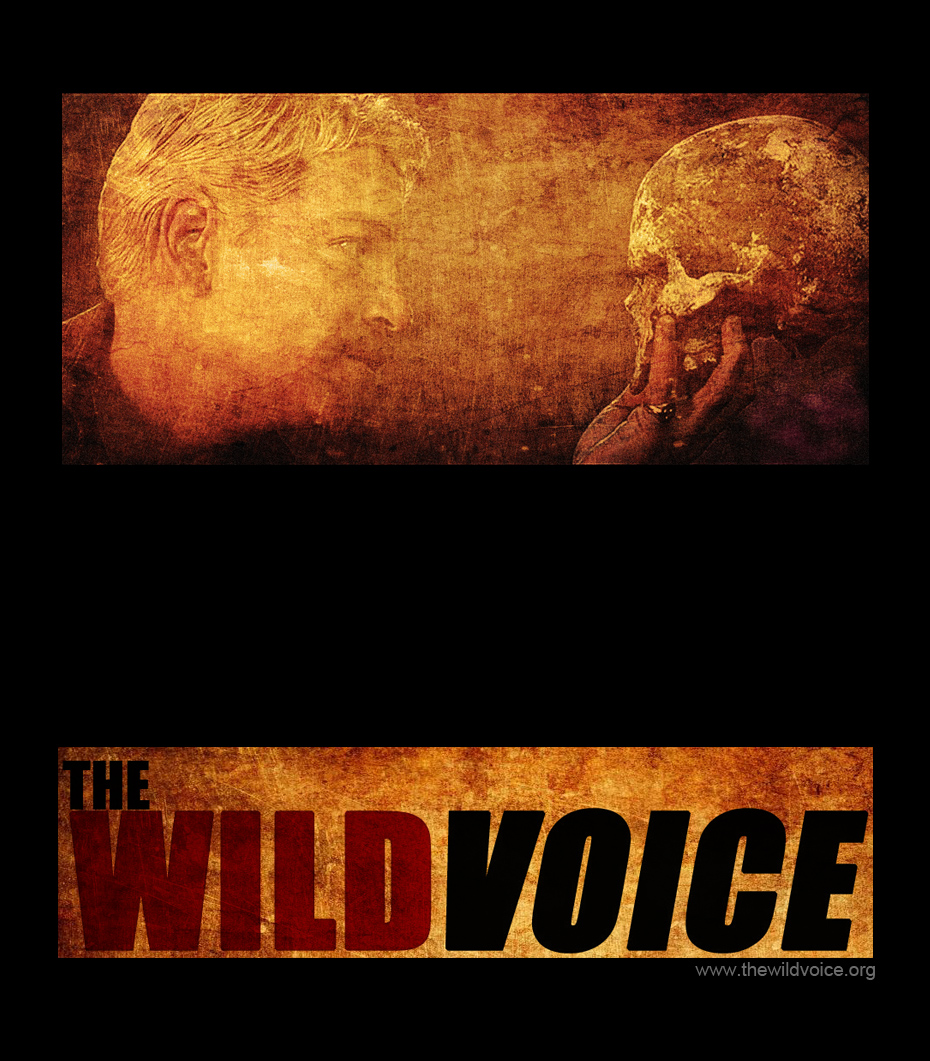published on July 8, 2014
THE STORY OF GOD'S SPIRIT, WANTING TO LIVE IN HIS CREATURES
Written by PAUL JOSEPH C.

Once, a famous English author wrote these profound words: "To be or not to be, that is the question".
While it is believed that an insane Hamlet spoke those vowels and consonants as a deep question concerning life and death, it was rather William Shakespeare's spirit and mind who gave a life and a voice to this man. If not for the creative genius of the playwright as well as his business ability to turn his scripts into stage productions, the prince of Denmark would have remained a fleck of dim light buried under billions of other thoughts within the author's cerebrum. Before Polonius, Laertes, Claudius, Rosencrantz, Guildenstern, Ophelia and Gertrude were murdered by Hamlet, they were killed by their own maker; surely, for the last 400 years they've been brought back to life thousands of times upon thousands of stages throughout our world while, each time, their spirits live in a new body, with a new voice and a new mind. They've been enjoying both the tension and the attention of all those audiences whose silence felt like a block of marble pressing onto the actor's pounding heart. The spirit of these characters got to share all the intimate secrets, the unspoken thoughts and the hidden loves of their hosts. And, although both the actor and the character loved to live and experience each other in a sort of union, one of the two was destined to die at the end of the whole season.
It is, indeed, the spirit of the character who will continue to live in all other actors who are willing to forget their own names by offering him their mind, body and soul. And, although the one artist playing Rosencrantz on the stage of a Broadway theater may believe to be the only person currently giving life to this Shakespearean character, the truth is that thousands of other fellow performers are simultaneously experiencing the same role in thousands of other theaters worldwide; some may speak English while others may speak German or Japanese, but the spirit remains the same and the words expressed are identical in their meaning; the interpretation is always personal, but the rules are the same for all these professionals. And when the audience cries, laughs, suffers and rejoices over the lives of these 'resurrected spirits' whose faces and bodies are borrowed from the thespians' love and servitude, they forget that the actor's real reasons to cry, laugh and suffer remain unknown to them.
What makes the marriage between a player and his role a most perfect interpretation is the pure and truthful union between the two: the actor will use his own heart, mind and body's faculties to explore the role's complex labyrinth in which he will lose himself. Through him, with him and in him all that was written on white pages will take life again and witness unto 'itself' while, concurrently, it will be through the role, with the role and in the role that the 'instrument' will allow himself to be accurately tuned according to the music it's meant to produce.
It is true: the character needs the actor in order to be brought back to life, but an actor without a character will be useless and forever unemployed. This is true of each one of us, every day people who never received a bouquet of flowers in the silence of a star's dressing room following the loud noise of a thousand strangers' applause. How could a nurse send her kids to school if her role became useless? Doesn't she need patients to be cured in the hospital that hired her so as to execute her dues as a person, a woman, a mother and a worker? Or how could a man 'play' teacher if no student ever showed up for class? How about a writer? How could he communicate his knowledge and inspire people if those students were not first taught how to read by their teacher? Just like the actor, we would die at the end of our season without having contributed to anything around us. And undoubtedly, it is on the existence of an author, of his talent, of his script, of all the characters within it, and of a stage production that his very incarnation completely depends on.
My dear friends, the relationship between the actor and the character living inside of himself is the same relationship between a man and His God. And the author of the play in which everything was, is, and ever will be is He Who Created the mountains, the ground, the Moon, the people and the trees surrounding you, sustaining you and decorating the stage on which you live. He, God, also allowed the creation of Ophelia, who was murdered by Hamlet, who was invented by Shakespeare and who, himself, came from his mother's womb after she married the last man of an endless blood line leading back to Adam.
Just like the British playwright, God Has established all things and all destinies before things and destinies were to unfold themselves along the ticking of the earth's heart. And while He Is the Writer of existence, His Second Person Decided to Squeeze Himself into the physical nature of a human person living within the existing creation He Wrote, in order to save the characters designed by Him. And after the Man-God Lived the life and Fulfilled the prophecies He Himself Masterminded from the eternal depth of His brilliance, The Creator's Third Person Descended unto us as a Spirit. This Holy Flame's desire to inhabit the very beings of ashes He Breathed life into is reminiscent of a king seeking to leave his castle for the sake of living in a shack. If we have no Spirit living in us, inspiring our hearts, speaking to our minds and guiding our actions, don't we remain useless unemployed people who, at the end of their season, will bring no fruits to the One who gave us a specific task in his vineyard?
All the individuals walking into that theater of ours called 'life' should not be noticing our bodies, our status or our opinions nearly as much as the ways, the words and the light of that Holy Spirit Who desires to live in every single creature made in the image and likeness of the Father and Whose name is Jesus Christ.
As an actor begins to know the role of Hamlet by reading the play, so will a Christian begin to know God by reading The Bible. With time and perseverance, all the words of Hamlet will be absorbed by the artist playing him in the same way the Christian is absorbing Christ's teachings. Overtime, and without realizing it, we will have grown to adopt Our Lord's ways through the joys and struggles of our training just as a performer would do through continuous rehearsals while allowing the character to mold him into a new person. And now that the actor's voice has become a well-trained instrument meant to serve the spirit's words in the spirit's own accent, we also might realize that the effect Our Lord has had on us is now clear to those we encounter: after all, how could we forget the following statement said to Peter right before the crowing of the rooster: "Surely thou also art one of them, for thy very speech betrays thee."
It was not Laurence Olivier playing Laurence Olivier that the audience wanted to see, but it was the unique and extraordinary amalgamation of Laurence Olivier playing the role of Othello and the role of Othello living in Laurence Olivier that sold the tickets of our dreams.
We, too, are unique. Each one of us must serve a role by melting our essence with the one of this One God Residing in us, so that the same Jesus Christ Is Being witnessed to in the multitude of billions of persons with a distinct face, body, voice, personality, race, gender and age. It is our face that the Lord Desires to use when He Calls us to cast the light of His Smile onto the night's darkness wrapping the life of a homeless person.
We often forget that being a Christian means to literally be Christ-like. It means to begin every morning and to end every night knowing, loving and serving God until the day when our wrinkled minds will be caressed by the warm breeze of death. It means that no longer I live, but Christ lives in me and I in Him. It means that we, the tasteless water, must be mixed with a drop of wine in order to acquire some taste just as a priest does during the Sacrifice of the Eucharist. And logic, my dear friends, suggests that the more wine is poured into that water, the more intense the color and the taste will be.
This is the most challenging struggle against myself; this is what it means to deny ourselves by drawing a horizontal line over the pronoun 'I': a cross is formed. We try and try and try because we fall and fall and fall. Rehearsal after rehearsal we attempt our very best in the joy and sufferings of our trials as we prepare for the great opening night; then and there, all will be present in the audience: the critics, the press, the rich women, the famous politicians, the pretentious ignoramuses and the snobbish purists. But it is the thought of having one special person sitting in that first audience which gives strength to our trouper: it is the thought of an old man with a cane, a few dollars in his pockets and the many wrinkles which could only belong to the face of a farmer. This man is the only spectator who will ever know the struggles, the thoughts, the past, the voice and the events of the person who will be hosting Hamlet on a large stage; and, as the play will come to its end, 999 people will only cry tears of sadness for Hamlet, while this one old man will be the only person to cry tears for both Hamlet and the man playing him: the son he raised among the loud sounds of horses and chickens in a remote farm in Minnesota and who is now standing on a stage and crying tears of joy as he can see his father's eyes glowing with the same love they had when he first taught him how to ride a pony. The exciting ride of a thousand people's loud applause was then muted by the past memory of a sweet breeze combing the green grass around his feet while holding his father's hand at the view of a golden sun falling asleep behind the horizon.
To be or not to be: is this still our question?
END OF THE PLAY

4 comments for “The Actor and The Spirit”